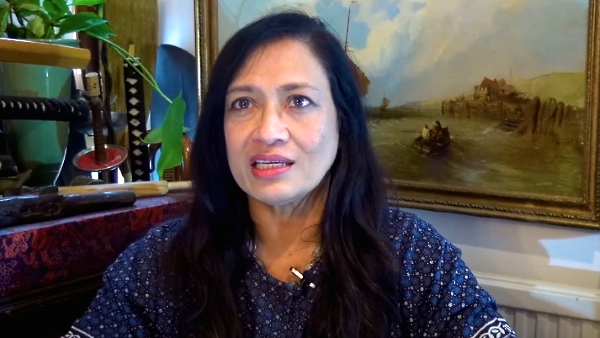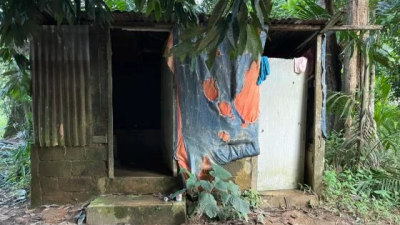
By Mariam Mokhtar
The brewing industry is not just about making alcohol, a product considered haram by Muslims. Breweries provide jobs, not just in the brewery, but also in ancillary companies.
The beer companies pay the much needed tax which helps pay for essential public services.
Building a brewery is no mean feat and its construction will have contributed to the local construction industry. Moreover, the company will be paying hefty annual permits to operate.
A small change in the brewing industry will be amplified and produce large effects in this very complex industry.
So, why did the National Security Council (NSC) cave in to the demands of the religious bigots and political attention seekers, and order breweries to cease operations with immediate effect?
The reason given was that during the "total lockdown", alcoholic beverages are not considered "basic necessities".
Do the NSC and the critics realize that the economy is in freefall, industries are struggling to cope and the nation could do with some businesses which can continue to operate safely?
Amanah Youth leader Kevin Shawn Gomez questioned the government's decision to allow the Carlsberg Brewery to continue operation during the total lockdown, as did Opposition leader Anwar Ibrahim.
Are they desperate to be in the political limelight and pander to the religious bigots? Did these men stop to think about the economy or the hundreds of thousands of people whose livelihoods depend on these industries?
No one is saying that lives and people's health should be put at risk, but with the right precautions and strict adherence to the SOP in breweries, there is no reason why these industries should cease operations.
Care home workers, medical staff and those in the electrical, water supply, telecommunications, transport, food distribution industries and security services, manage OK.
Coronavirus will kill many people but once the disease is under relative control, the millions of unemployed people, coupled with businesses being forced to close, will kill even more people than the disease itself.
People need jobs to pay for food, rent, healthcare and basic needs. The treasury needs companies to prop up the economy.
These are difficult economic times, and if companies can operate under the strictest of conditions, why not?
The brewing industry is not just about the scores of thousands employed in the ancillary industries such as bottling companies, aluminium can making factories, warehouses, refrigeration companies, nitrogen manufacturers, chemical companies and waste control operators.
Downstream, there are many companies to which the brewery supplies, like the supermarkets, grocery stores, off-licenses, pubs, bistros, restaurants, airlines, duty-free shops, cruise ships and hotels. These are mostly in the tourism, hospitality and export industries.
The ancillary trade also employs many thousands of people, from drivers, publicans, caterers, party planners, airline crew, duty-free staff, promoters, guest relation officers and warehouse operators. Don't forget that all these industries, including the brewery, also employ cleaners and office staff.
Upstream operations in the brewery includes the import of grain and hops. If production is stopped or is haphazard, our port workers and container ships and supply distribution network trade will also suffer.
Beer delivery vans and lorries need petrol, they pay tolls, licenses and permits to operate.
Brewing is not just about making alcohol. It represents a diverse section of the economy.
Today, beer making is a fully automated, closed fermentation process and the workforce is small.
When a brewery is told to stop operating, the company will probably incur heavy losses because once a fermentation process starts, it must go to completion.
We may not know the exact processes involved, but it stands to reason that stopping operations halfway will mean the equipment must be cleaned and sanitized to be ready for the next time it starts producing beer.
The company will have to bear all this waste. Not knowing when it may resume operations means that storing the raw materials is also problematic.
Who decides what is a "basic necessity"? One man's preference may be another person's dislike.
Are cigarettes a basic necessity? What about sugary drinks? Malaysians are some of the most obese people in Asia and the number of diabetics is also alarmingly high. Shouldn't we stop the production of sugary drinks, fast food, food with a high salt content and processed foods?
A government which panders to the whims of the bigots in society and parliament will not attract foreign direct investment.
As it is, many foreign investors have found our neighbors to be a more attractive and conducive place to do business.
Opening a multi-million ringgit factory or brewery is not a small undertaking. It needs constancy and a stable government.
Brewing is not just about providing a much needed thirst quencher. It is also about providing jobs which during this coronavirus pandemic are in very short supply and face an uncertain future.
Alcohol is not the problem, but bigots with a limited understanding of the economy are.
Sources:
1. Free Malaysia Today: 95,000 companies get Miti nod to operate so far
2. Free Malaysia Today: Is beer essential, Amanah asks after brewery gets nod
3. Twitter: Anwar Ibrahim
4. Al Jazeera: Malaysia's economy shrank in 2020 by the most since Asian crisis
(Mariam Mokhtar is a Freelance Writer.)
ADVERTISEMENT
ADVERTISEMENT


































